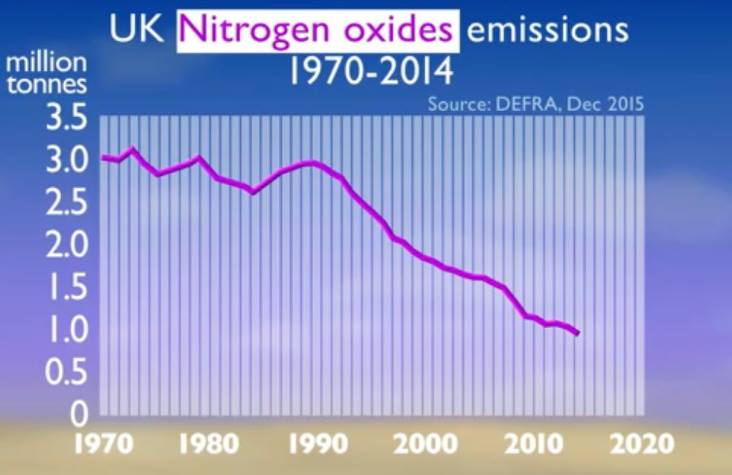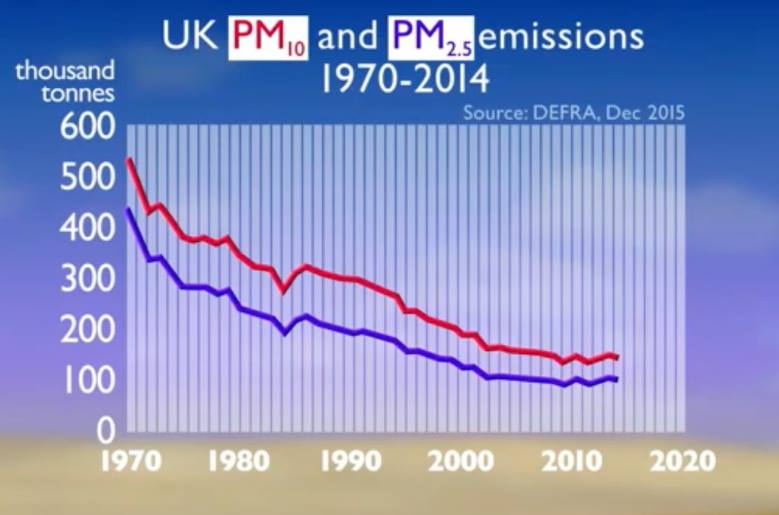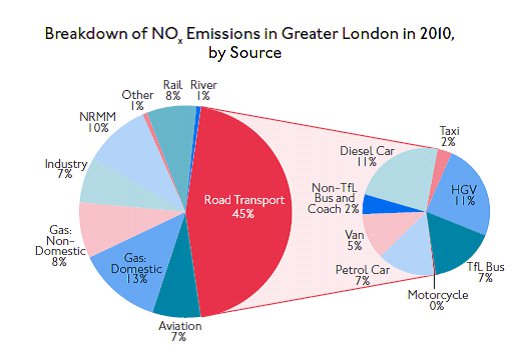
Anti-Diesel Propaganda
in the UK
Recent news on energy
It will not have escaped readers of this website that there has been a lot of anti-diesel-car propaganda circulating recently, especially with regard to nitrogen oxide and particulate emissions.
It is difficult to understand why. Diesel cars are cleaner now than they have ever been; Euro-6 diesels emit hardly any pollution at all.
Take a look at these graphs:


It is clear from these graphs that there is not a problem. Why, then, is diesel being demonised?
A much larger quantity of nitrogen oxide pollution in cities is caused by industrial activity and by commercial and domestic heating, not cars. Diesel cars make a very minor contribution. Domestic cookers and central heating systems both emit appreciable amounts of nitrogen oxides. I notice no-one has told us to stop cooking or heating our homes.
This is another example of a policy being promoted without proper reason.
The BBC then assists by broadcasting propaganda to persuade us that the decision was right all along.
Here is a graph of the source of NOx emissions in Greater London in 2010. I am indebted to the Policy Exchange website for the diagram.

NRMM(non-road mobile machinery) + Industrial + Non-domestic Gas + Domestic Gas comes to:
10 + 7 + 8 + 13 = 38% of the total.
Diesel car contribution comes to:
.11 x .45 = 4.95% of the total.
Petrol car contribution is
.07 x .45 = 3.15% of the total.
The total road transport contribution is 45% in the diagram, but this was 7 years ago. There have been significant advances in engine cleanliness since then; both for petrol and diesel.
The 'anti-diesel' campaign will result in fewer diesel cars. However, NOx levels won't fall very far; car-diesel NOx is only 5% to start with.
Petrol cars will be bought as replacements for diesels, so petrol NOx will go up from its present 3%.
The reduction in overall NOx levels, even if every diesel car was replaced by petrol, would be a lot less than 5%.
I haven't done the sums, but I suspect that you could get a bigger NOx reduction by getting the public to turn down their central heating thermostats by 2 degrees.
Think of the waste of resources encouraged by this scheme: thousands of perfectly good diesel cars with plenty of life left in them will be turned into scrap.
This is not the way to protect the environment.
habitat21
big turbines
small turbines
